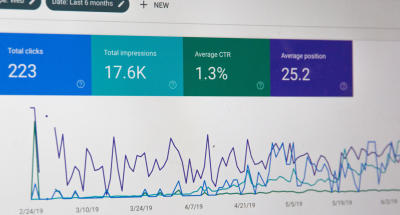
Common Mistakes to Avoid In Your Digital Strategy
While figuring out your business’s digital strategy can take a bit of trial and error, at Frankly, we believe there are certain approaches to favour and mistakes to avoid that let you reduce the “error” aspect of it. Although each business is different, there are objective truths in digital strategy that can apply to almost any business. Here, we’d like to give some insight into what generally doesn’t work for businesses, and share with you just a few common mistakes to avoid in your digital strategy:
1. Constantly Leaning “Acquire” over “Retain”
Marketing strategies will always target acquiring new customers in some capacity, but the key is not to solely or heavily prioritise acquisition at the expense of retaining customers. Both are important, but many studies have found that existing customers provide greater cost-to-revenue efficiency from a marketing standpoint. From the Frankly Insights platform, we know that approximately 60-70% of the average company's business will come from existing customers. This means that a proper understanding of the most effective methods of retaining customers and creating ‘lifetime value’ out of your customers should be a top priority.
How can this be achieved? It starts with a clear picture of what people see after they’ve made a purchase or interacted with your business before. User experience is central, whether that’s online through web design, in person, or over the phone. For example, three-quarters of online customers expect their loyalty with certain companies to be rewarded with discounts and offers in the future. If you know what your returning customers expect and how they experience your website or offering, you'll be able to boost sales through retention rather than constant acquisition.
2. Overconfidence with the Status Quo
It is a fact of life for the digital strategies in so many businesses that overconfidence is the enemy of progress. Whether it’s digital marketing, product design, or deciding on certain data/technology, being overconfident in what you are currently doing can have drastic consequences and lead to underperformance. A common roadblock to adaptability is that decision-makers lack insight regarding how to revise their strategy, in terms of which direction to pivot to.
For example, from the Frankly Insights platform, we know that 20% of large companies are confident that they have the right marketing technology in place to measure marketing ROI, when in actual fact campaigns are underperforming. That’s 1 in every 5 large companies measured that are underperforming and being held back by overconfidence in their status quo. Knowing when to change and being willing to change are obstacles to overcome, but it starts with actually measuring the performance of your strategy, whether that’s as simple as clicks or something less tangible but just as important, such as brand health. At Frankly, we are proponents of the saying that “you can’t manage what you can’t measure”, and measuring your current strategy, recognising overconfidence, and being adaptable are all crucial elements of any business.
3. Ignoring First Party Data
What is first party data? First party data is data that your business owns and collects itself directly from your customers, such as through your app, website, or even paper records - just about any way you can get information from the people using your product or service. With third party data sources (such as that provided to you by Google Ads + Analytics) dwindling recently due to privacy concerns, the onus has shifted onto businesses themselves to record first party data that might aid them in strategising for future decisions and initiatives.
A Boston Consulting Group study found that businesses using first party data for key marketing functions earned an average of 2.9x more revenue and 1.5x savings on costs. First party data can greatly aid you in optimising your offering and platforms for the people that matter most - the customers - while also giving you the opportunity to personalise certain offers and promotions to certain customers.


